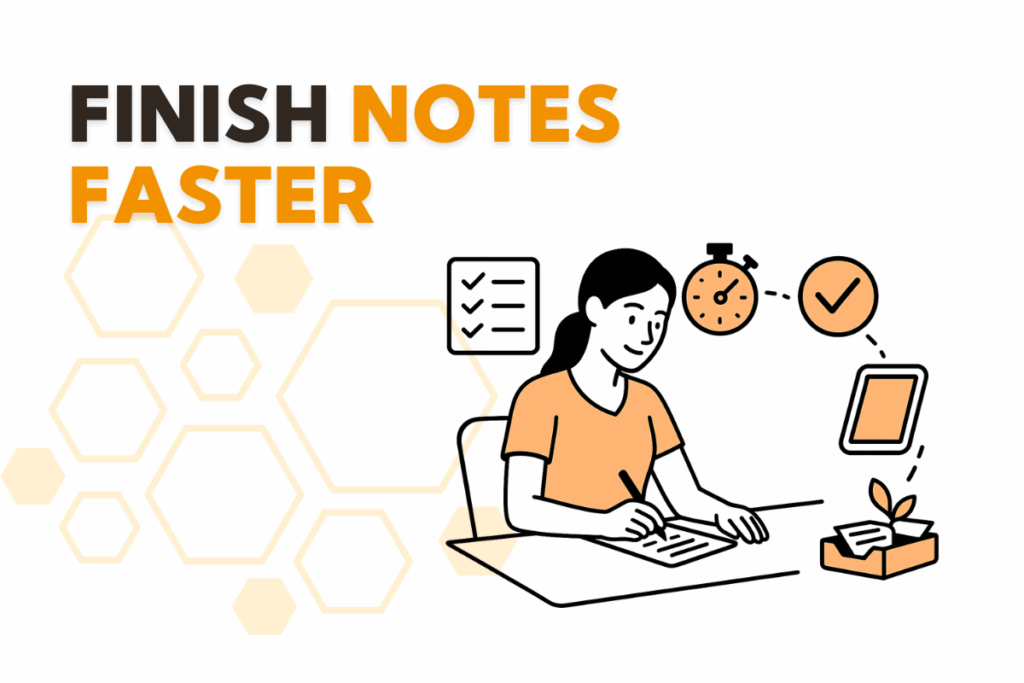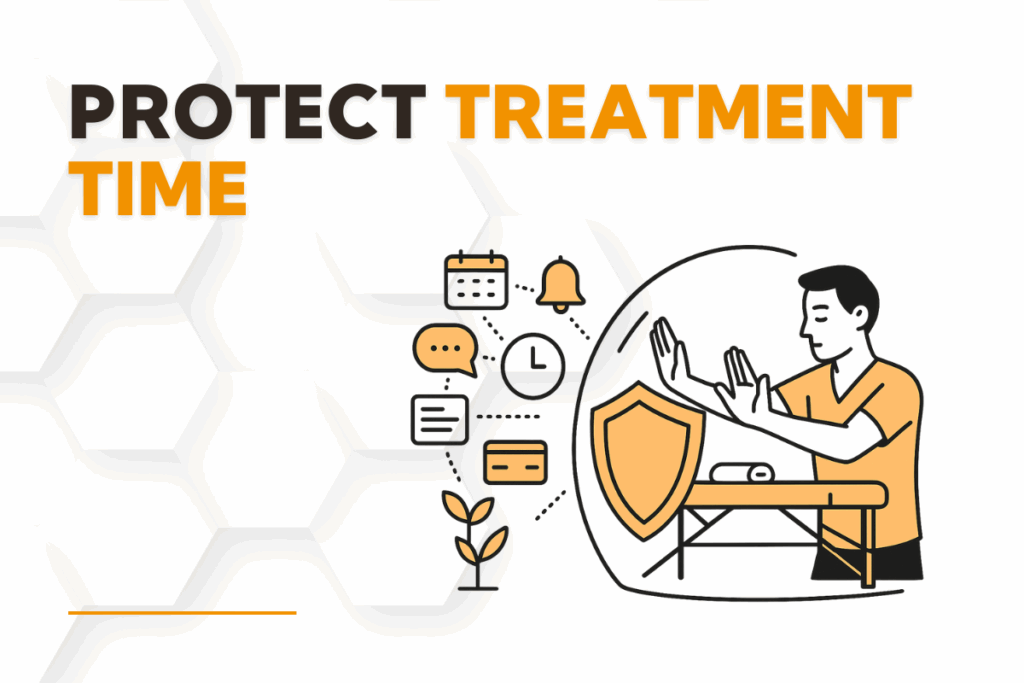The quiet cost of constant switching
The administrative burden for massage therapists shows up the minute you finish a session and a reschedule ping pulls you away from SOAP notes. Then a billing question arrives. By the time your next client steps in, your attention is already split. That steady drip is not about willpower. It is the cognitive tax of context switching. Recognizing burnout as an occupational phenomenon, the World Health Organization explains how unmanaged work stress erodes energy, efficacy, and care quality. Read more on the WHO site.
Name the friction to change it
Small interruptions, real impact
When the administrative burden for massage therapists creeps into every gap, attention residue lingers. Even routine tasks feel heavy because your brain never fully resets between roles.
The after-hours trap
Charts and replies spill into evenings. This is where the administrative burden for massage therapists quietly grows into fatigue that follows you home and back again.
No-show churn that multiplies admin
A single gap can trigger waitlist shuffles, fresh confirmations, and policy clarifications. The administrative burden for massage therapists spikes right when you need calm rhythms and predictable windows.
Give every task a home
The three-lane model
Create three lanes so the administrative burden for massage therapists stops invading treatment time. Lane One is Client Care with the room ready, phone silent, and your presence undivided. Lane Two is Documentation with short, structured blocks right after each session to close notes while details are clear. Lane Three is Communications and Admin inside defined windows so you control when messages, reschedules, and payments get attention.
Schedules that support focus
For a solo therapist seeing six clients, use ten minutes of charting after each session, a twenty minute mid-shift admin window, and a ten minute end-of-day wrap. In a team clinic, rotate a shared inbox hour while each therapist keeps personal admin anchors. The administrative burden for massage therapists shrinks when the day has anchors instead of constant ad hoc decisions.

Scripts that make boundaries kind and clear
Triage messages without guilt
Use warm, predictable language so clients know when you reply. Try, “Thanks for reaching out. I am in session this morning. I review messages at 12:30 and will reply then.” Or, “I close each chart before my next appointment so your plan is accurate. I will confirm your reschedule during my admin window.” When clients understand your rhythm, the administrative burden for massage therapists eases for everyone.
Reduce surprise around changes
Invite complete details in one reply. “For changes, please send your preferred day, time window, and therapist. I reply in my next admin block.” Clear requests mean fewer fragments across channels and a smaller administrative burden for massage therapists throughout the week.
Remove friction at the source
One channel, one path
Choose where intakes and changes live and stop scattering information. Put the path in your welcome email, booking confirmation, and a simple sign at reception. Centralizing updates reduces the administrative burden for massage therapists who might otherwise search across texts, emails, and DMs.
Checklists that calm the day
A short between-client reset checklist and a new-client prep checklist cut micro-decisions. Visible steps prevent mental clutter and reduce the administrative burden for massage therapists during busy stretches.
Standard replies you personalize fast
Keep warm templates for common scenarios like reschedules, receipts, direct billing, and post-session care. Personalize a single line instead of writing from scratch while in motion. That small habit lowers the administrative burden for massage therapists without sacrificing tone.
Documentation in half the time without cutting corners
Define “done” for SOAP
Decide what finished means. Objective findings, a clear plan, and next booking noted. Extra detail should earn its place. This clarity trims the administrative burden for massage therapists who tend to overwrite when tired.
Structure beats remembering
Use consistent headings and short phrases. Copy forward only what remains clinically valid today. Familiar structure reduces the administrative burden for massage therapists because the brain is not redesigning the note every session.
Guard your evenings
Set a daily cut off for notes and keep it. If one chart needs more time, move it to a morning block. Protecting rest is how you show up with steadier hands and a clearer head, despite the administrative burden for massage therapists in modern clinics.
Team agreements that lighten the load
Who answers what and when
Assign shared inbox hours, define what urgent means, and outline how to escalate true urgencies. Publish the plan where everyone looks first. With shared expectations, the administrative burden for massage therapists stops bouncing unpredictably between people.
One source of truth
House policies, schedule changes, and waitlist rules in one updated location. A single playbook trims the administrative burden for massage therapists and front desk staff, and it keeps decisions consistent.

Measure what matters for 30 days
Same day chart completion rate
Track the percentage of charts closed before you leave. Aim for eighty to ninety percent. As this rises, the administrative burden for massage therapists usually falls because evenings stay clear.
Context switches per hour
Tally switches during a few shifts. Awareness alone brings the number down. Fewer switches mean calmer transitions and cleaner notes.
When you are already stretched
What to change today
Block one fifteen minute admin window and one ten minute charting window. Use a boundary script twice so clients learn your cadence. A tiny start still chips away at the administrative burden for massage therapists.
What to change this week
Consolidate messaging into one channel. Add the “reschedule window” request to confirmations so you receive complete details in one reply.
What to change this month
Build your checklists and standard replies. If you work with a team, pilot a rotating inbox hour so therapists in session can stay present without the administrative burden for massage therapists tugging at their sleeve.
Bring your day back to the table
Your hands-on work is why people book. Your admin keeps the clinic healthy. Both matter, just not at the same moment. Protect a few focused minutes and use clear, kind boundaries. The room will feel quiet again. Your care will feel precise. The administrative burden for massage therapists will shrink to its proper size.
Practical tools that help right away
Streamline intake with online intake form workflow so essential details arrive before the visit and back and forth messaging drops. Close charts faster with electronic SOAP notes so documentation fits inside your defined lane instead of leaking into evenings.
FAQs
Start with one mid shift window of fifteen to twenty minutes and a ten minute wrap before you leave. If you still peek at messages between every client, add a short morning window. The point is to reduce the administrative burden for massage therapists by cutting switches, not by adding more busywork.
Aim to close most notes before the next client. A clear definition of done keeps you from over writing when tired and it lowers the administrative burden for massage therapists across the week.
Use friendly confirmations, invite preferred day and time windows for changes, and keep a ready waitlist. Clear expectations prevent churn and reduce the administrative burden for massage therapists during peak hours.
Define urgent with your team and with clients. Route day of injuries, access issues, and time sensitive questions to a front desk or rotating inbox hour. Everything else waits for your admin window so the administrative burden for massage therapists does not spill into hands on care.


